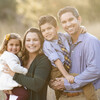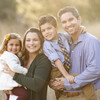"You’ll find out when you reach the top, you’re at the bottom." — Bob Dylan, American singer-songwriter
King Solomon had it all, but he was frustrated at the futility of life. The more wealth and prosperity he achieved, the more meaningless it all became to him. He had reached the mountain top of success but was in an emotional valley.
The book of Ecclesiastes was his way of wrestling with the tension of being at the pinnacle of worldly success while feeling like he was stuck in a pit. Everything Solomon touched turned to gold but, to the king, all of it was meaningless like chasing after the wind.
Solomon wrote in Eccl. 7:15–18:
“I have seen everything in my days of vanity:
There is a just man who perishes in his righteousness, and there is a wicked man who prolongs life in his wickedness.
Do not be overly righteous,
Nor be overly wise:
Why should you destroy yourself?
Do not be overly wicked,
Nor be foolish:
Why should you die before your time?
It is good that you grasp this,
And also not remove your hand from the other;
For he who fears God will escape them all."
This is a text that can be initially confusing but offers some profound truth. The first thing that is made clear is that the prosperity gospel is a lie!
Solomon observed that bad things happen to good people. Good people suffer; good people die. It doesn't matter how often they pray or go to church, how much tithe they pay or how healthy their diet is.
When I was young, my grandma died of lung cancer. She never smoked for a day in her life. She was a vegetarian, went to church every week and was a good person.
One time she was asked, "Why would God allow this to happen to you?" She replied, "Why not me?"
She understood that not everything happens for a reason. Cancer didn’t come for her because she lacked faith; it came because it is a hideous disease and sometimes bad things happen to good people.
Conversely, sometimes "bad" people appear to prosper. They have money and health, and they don't seem to be held accountable for their actions. I know people who have smoked over a pack a day and have lived well into their 90s. Solomon may have been referring to such people when he said, “they prolong life in their wickedness."
Ecclesiastes challenges the so-called conventional wisdom that one is blessed because of her righteousness or cursed because of his wickedness. This is not always the case. Sometimes the wicked appear to prosper.
The second point this passage brings out is the danger of being "overly righteous." What does that mean and how is it possible to be overly righteous? This is referring to a legalistic exactness that actually turns potentially good things into a curse.
The Adventist Church believes in healthy living. We believe that the best diet for your health is a plant-based diet. There is a lot of compelling evidence that backs this up. (See the groundbreaking research from the China Study or the documentary Forks over Knives as case in point.) However, while healthy living is good, imposing it on others in an "overly righteous" way is not!
Not all Adventists are vegetarian or vegan. It's not a requirement of the church; it's encouraged, but some people do more than encourage.
A couple of years ago, I heard a story that illustrates this point. A newcomer to the church was invited to a potluck and brought a dish. In the lunch line, she noticed her dish was missing and asked a church member in the kitchen about it. The member led her to a trash can and informed her that she had thrown it away. Do you know what kind of food it was? It was macaroni and cheese. The overly righteous saint didn't like that the dish had cheese in it.
In his book, Ecclesiastes, All Is Vanity, Jacques B. Doukhan explains the danger of being overly zealous. He says, “The fanatic for God and for the truth can be dangerous and can turn their original wisdom into foolishness, so the perfectionist can create hell on earth. So eager to do exactly the very right thing, they will not only become an unbearable pain for their neighbors but in the process destroy themself. The same principle applies to the 'overly wicked;' they will also die because of their excess. To add bad to the already bad will make it worse.”
Ecclesiastes’ ethical advice, then, is consistent with that ambiguity. “It is good that you grasp this and also not remove your hand from the other” (Eccl. 7:18).
It is clear he is referring to both good and bad. Is Ecclesiastes encouraging ethical decisions based on compromise — a middle ground between good and evil? Is he suggesting a mixture of the two? Certainly not! Ecclesiastes asserts that good and evil are already intertwined, making it challenging to discern the best path forward.
Ecclesiastes highlights the tension between the opposites of good and bad. The only way to break through the confusion surrounding good and evil is to "fear God." As it says, “For he who fears God will escape them all” (7:18). Focusing on legalistic perfection can lead to self-destruction and harm those we aim to help.








